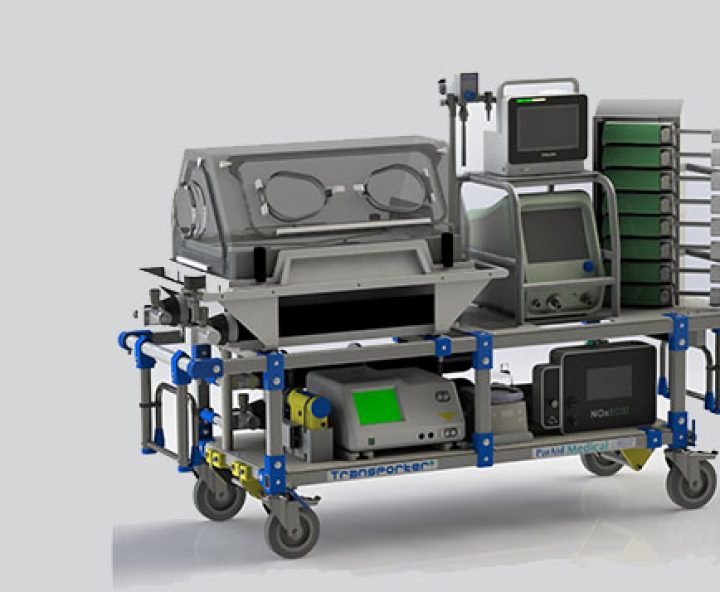Challenge
With the aim of preventing damage affecting brain function (encephalopathy) in ambulance transfers this KTP set out to design and develop an impact resistant interface system (IRIS) for neonatal equipment to be securely attached to European Ambulance Loading Trolleys and other ambulance trolley markets worldwide.
The current consensus among medical professionals, taken from anecdotal evidence is that the risk of brain injuries in ambulance transfer under heavy acceleration and deceleration can also be caused by the movement and forces that take place during shaking (rotational acceleration and deceleration forces), with or without impact against a hard or soft surface. The brain moves within the skull which causes the bridging veins to tear and bleed into the dura.
The new Paraid ambulance trolley fitted with an Impact Resistant Interface System (IRIS) aims to reduce this risk.
Outcome
The KTP with Birmingham City University uses new simulation software to determine the strength/stress analysis of the IRIS and other ancillary Paraid products in the event of an ambulance crash. As a result of the KTP the following outcomes and benefits have been achieved:
- The IRIS design specification reduces the risk of high g-forces experienced by the neonate in emergency ambulance transportation under high acceleration and deceleration and is a Unique Selling Point (USP).
- efficiencies in the manufacture of the neonatal transportation product range as well as the ability to effectively manufacture any future critical care neonatal transportation products.
- Value added ambulance products created from new software simulation capability purchased by the company during the KTP programme has resulted in higher quality products less prone to mechanical failure (Saving £5,000 per prototype testing and time).
- The availability of university resources gave the company access to the latest simulation techniques, business models, rapid prototyping, information technology, and problem solving issues.
- The software simulation led design programme improved the company’s decision-making process. The designs are proven before manufacture saving £10,000 per design on physical testing and development time.
- The use of modular components identified during the KTP for rapid concept creation enabled the company to obtain a 10 – 15% productivity gain.
- A step change in design and problem solving techniques through training and the use of processes developed during the KTP Programme.
Further information
This project was a finalist in the Societal Impact category, supported by UKRI, of the KTP Awards 2020.







